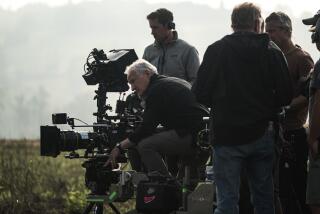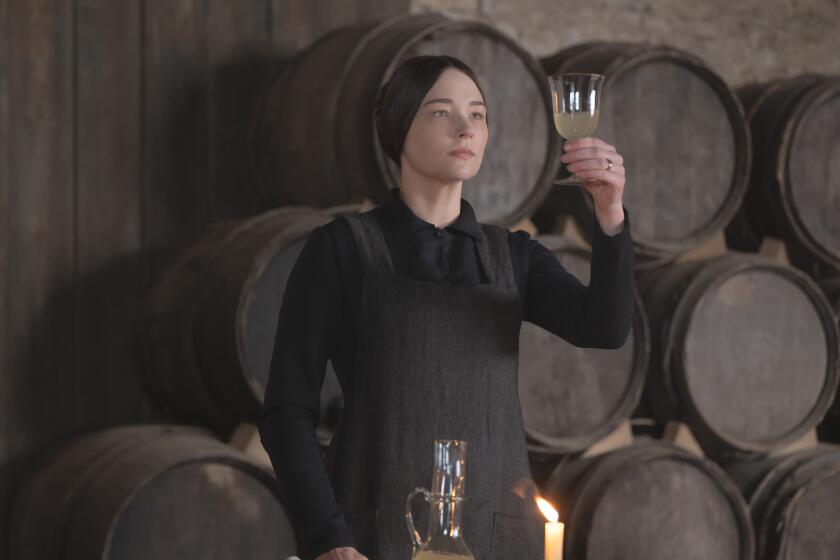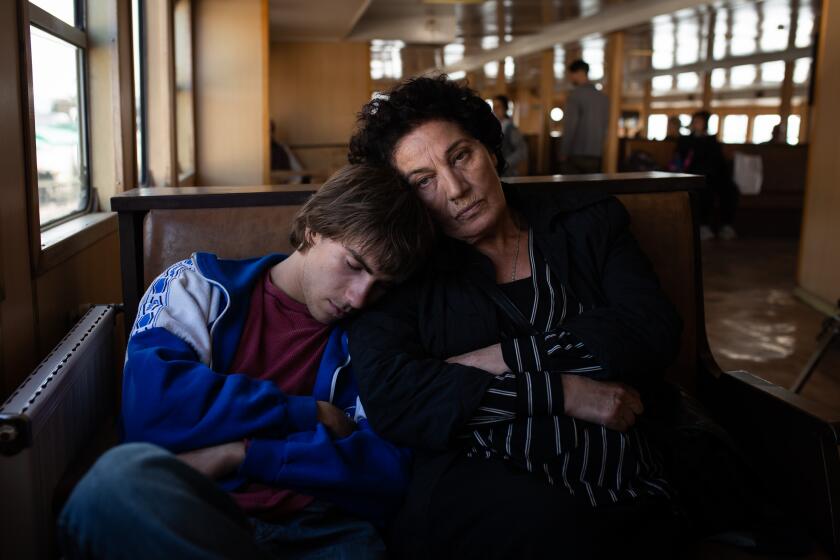Joy in good hair days
An insult commonly added to troubled nations’ injuries is that their problems eventually become normative in the eyes of outsiders -- Third World business as usual. The most striking moment in Liz Mermin’s wonderful documentary “The Beauty Academy of Kabul” occurs in the first few minutes, when the film quickly runs down the devolution of Afghanistan, in particular Kabul, from a place one of the film’s subjects describes as “a modern city, where girls went to the university, worked in offices, wore miniskirts and had their hair fixed” through two decades of political instability and war that included three coups, Soviet invasion, Soviet withdrawal, the rise of the Taliban and yet another war. It’s the rest of the film, which discovers a surprisingly cheerful and resilient society trying to restore some semblance of quotidian routine, that makes an impact, however. And the Americans are funny.
The film sets out to chronicle the opening of a beauty school in Kabul, which at first sounds like a singularly trivial and silly thing to bring to the women of a city slowly emerging from brutal repression. After the Taliban shut down schools for women, forbade them to work and threatened them with death for transgressions such as showing an inch of bare forearm in public, many women continued to work as hairdressers in secret, just as their burka-shrouded customers, some of them Taliban wives, continued to patronize them.
The project began after an American named Mary MacMakin, who worked with Afghan women before being deported by the Taliban, was profiled in Vogue and met a stylist named Terri Grauel. MacMakin returned to Kabul after the Taliban were ousted, and Grauel contacted her, wanting to help. MacMakin suggested starting a beauty school, for reasons more pragmatic than frivolous. The trade is relatively easy to learn, quick to implement and requires no contact with men -- all serious considerations in a Muslim country where the literacy rate among women is 14%, and about 60% are widowed and raising children alone. With the help of Vogue editor Anna Wintour and other members of the beauty industry, Beauty Without Borders set to work on building a school in the shattered city, which, when it opened for its first eight-month course, saw 400 women lined up around the block for a chance to enroll.
Some of the film’s most poignant moments involve Afghan women who fled the country decades earlier returning for the first time to face their country’s devastation. Among the school’s initial cycle of teachers is a stylist named Sima, who interprets for the English-speaking stylists and expresses her immense feelings of guilt at having escaped the fate of her countrywomen. If Sima represents a tie to Afghanistan’s past, it’s a past some of the school’s students never knew. Some, however, remember. As one woman recalls the various offenses that could result in public beating by the Taliban, she recalls thinking at the time, “How did this happen to us? But we lived, and it passed.”
To students at the school, the American and English stylists represent something exotic, baffling and at times, very amusing. When some of the women have a hard time with their new scissors, Grauel announces, “Frederic Fekkai donated those scissors, and they’re a lot better than what you’ve been using.” Needless to say, the celebrity-stylist name-dropping is not met with quite the reverence it might have inspired stateside. Likewise, when Grauel leaves, her effusions (“I love you so much and you’ve done so well!”) are greeted with happy but nevertheless blankish stares.
Debbie, a Liza Minelli look-alike with the demeanor of a drama major, takes it upon herself to teach a women’s driver’s ed class -- eliciting amazed stares all over town. When her attempt to banish old-school perm rods meets with some resistance, she laments, “How will Afghanistan change if you don’t go to a more modern look? You’re stuck in a rut, guys!” But the teacher most likely to put one in mind of “This Is Spinal Tap” arrives later, sporting crimped red hair and blue-tinted John Lennon sunglasses, which she doesn’t even remove indoors. A massage therapist and an avid meditator who considers herself, out loud, “a healer of people,” she begins to notice that “many of the women here seem fearful of their husbands.” “Why?” she asks Shaima, Sima’s replacement. “Is there some verbal abuse going on at home?”
Not all of the encounters are ludicrous, however, and some are quite touching. When Patricia, the British head of the program, invites the students to ask her questions, they immediately want to know if she is married. When she says no, they clam up. Someone asks why, and Patricia starts to say something about not having found someone to marry. But one of the women makes a joke that drowns out her response. Shaima translates: “Life is boring if you’re not married. We don’t have any more questions.”
Compared to the Afghan exiles Sima and Shaima -- who introduces herself with a speech that starts, “This country is ruined, and if we don’t fix it, nobody will. You are a sacrificed generation” -- the Americans seem oddly rudderless, as though clinging to their Oprah-forged, celebrity-obsessed view of the world for direction.
Surprisingly, “The Beauty Academy of Kabul” provides equal insight into both cultures, showing how excessive, self-obsessed disconnect can shape a culture as strongly as a hideously intruding reality. It’s a strangely equalizing force, and it makes the project feel dynamic and mutually beneficial in unpredictable ways. Ultimately, Mermin’s film is a profound reminder of the things that make us human. Things that don’t matter much, in the scheme of things, but loom large when taken away. Things we all have in common.
*
“The Beauty Academy of Kabul”
MPAA rating: Not rated
A Shadow Distribution release. Director Liz Mermin. Producers Nigel Noble, Liz Mermin. Director of photography Lynda Hall. Editor Liz Mermin. Featuring the music of Ahmed Zahir. Running time: 1 hour, 14 minutes. In English and Afghani with English subtitles.
Exclusively at the Nuart, 11272 Santa Monica Blvd., West L.A. (310) 281-8223.
More to Read
Only good movies
Get the Indie Focus newsletter, Mark Olsen's weekly guide to the world of cinema.
You may occasionally receive promotional content from the Los Angeles Times.






